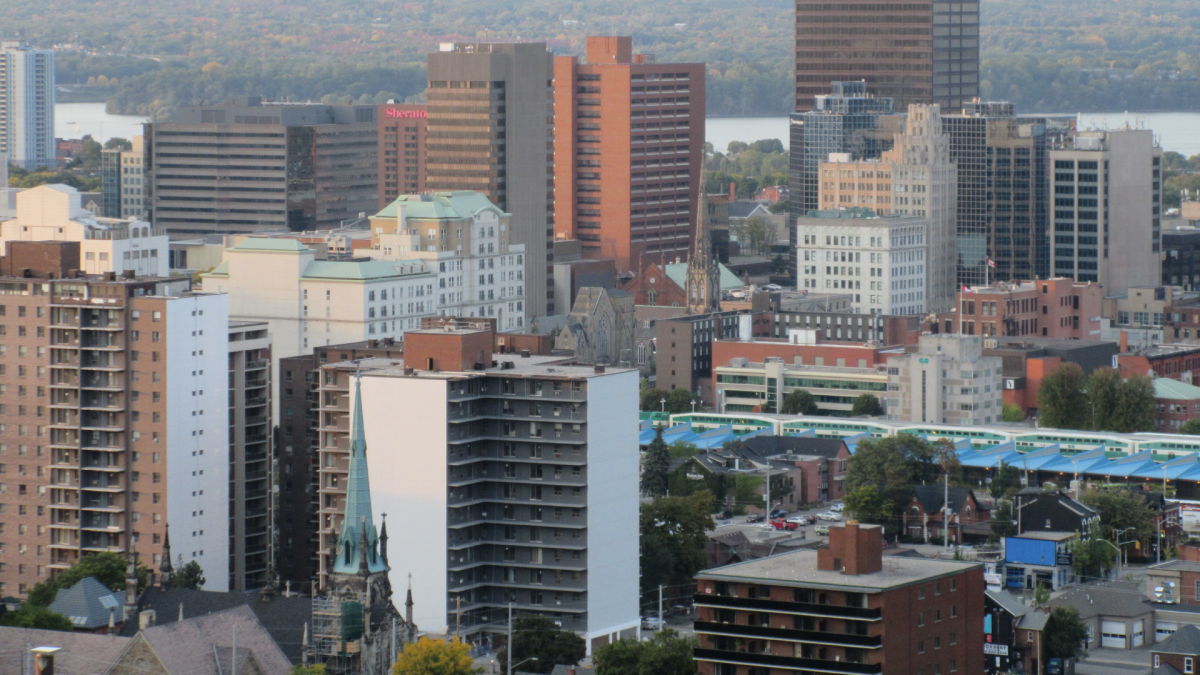Hamilton’s mayor expects a peer review of a consultant’s report suggesting the city will have to expand outward to accommodate population growth will bring a “great debate” on future development.

Following the city’s backing of Upper Stoney Creek councillor Brad Clark’s request for the review on Wednesday, Fred Eisenberger said the process is “not a bad thing” and potentially could confirm assumptions made in terms of a land needs.
Eisenberger hopes the review will work in tandem with current surveys out in the broader community to manage a balancing act of how much greenfield should be taken up and what intensification of developments should happen in the inner city.
“I’ll hearken back to LRT, 50 per cent of the motivation around the LRT is to inspire inner city development, housing and commercial in on the existing infrastructure in the existing boundary of our city,” Eisenberger told Global News.
“Urban sprawl is a problem, is a challenge. The more you spread out, the more fiscally challenging it becomes, the less sustainable it is, the more services you have to provide.”

Get daily National news
Clark told councilors on Wednesday the idea for the review was motivated by feedback from community which questioned land economist Antony Lorius’s interpretation of provincial policies tied to the plan for growth in the Greater Golden Horseshoe.
East Mountain councillor Tom Jackson was opposed saying he was not sure what it would accomplish “with taxpayer’s money” and that it brings the city that much closer to the July 2022 deadline without a plan.
“Let’s keep mindful of the fact of what the minister (of municipal affairs and housing) provided in a communication to us about a month ago, ” said Jackson.
“Absolutely no extension of time until July of next year for the municipality to provide their land needs assessment and how they’re going to move forward to accommodate growth.”

The general manager of planning and economic development for the city Jason Thorne said he couldn’t confirm the final cost of the review since no one has been approached to do the study.
“I can give you my best ballpark, and say we’re probably in the neighborhood of about $25,000,” Thorne said.
In a social media post, Environment Hamilton expressed their support for the peer review saying Lorius’s review included “subjective inputs that experts don’t agree on.”
In February, the agency’s executive director Dr. Lynda Lukasik, said she welcomed the Ford government’s plan to include protecting so-called “white belt” land from being used for urban growth.
Some of those white belt lands are being eyed by the city of Hamilton for urban expansion as part of its growth plan up to 2051 including an area in Stoney Creek known as the Elfrida Growth Area.
The province’s growth plan estimates Hamilton’s population will soar to 820,000 — an increase of 238,000 residents — by 2051.
Eisenberger told Global News he expect the whole review process to happen before the council imposed deadline between October and November.
“As you make that decision, there’s an appeal process and there’s a potential that challenges that come through all of that,” said Eisenberger
“All of that has to be done by July of 2022.”








Comments